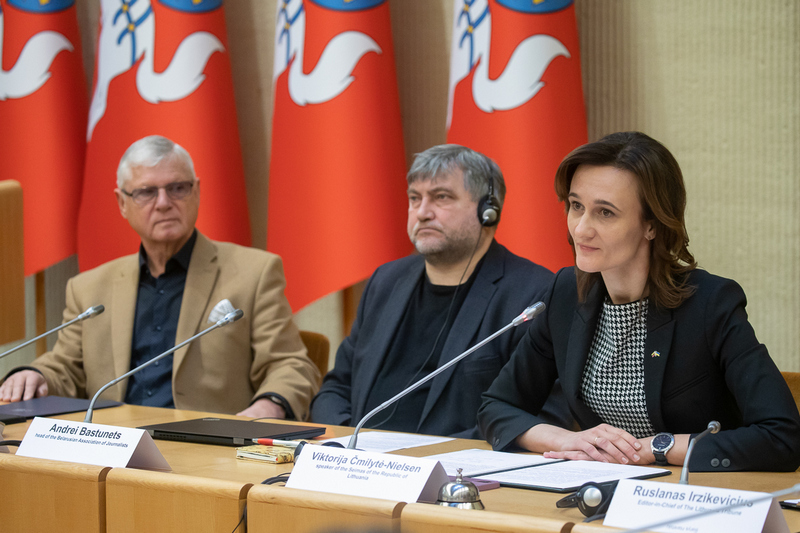“We don’t want Belarus to become an information black hole.” Discussions at Free Journalism Forum
Despite all repressions, the second Free Journalism Forum was held in Vilnius and attended by Belarusian media experts and reporters. Although the news setting is now imbued with pessimistic reports, the present and future of independent media were extensively discussed at the event, which was definitely encouraging.
“It is a collective journalistic mind that keeps on working”
According to the Belarusian Association of Journalists, some 400 media representatives have fled the country for safety reasons in recent years. Relocating whole editorial boards has become commonplace.
“In Belarus, journalism and media keep facing criminal prosecution for reporters’ activities,” acknowledged Teresa Ribeiro, OSCE Representative on Freedom of the Media. “Cases of harassment are systematic. This is unacceptable. My colleagues and I continuously monitor the situation.”
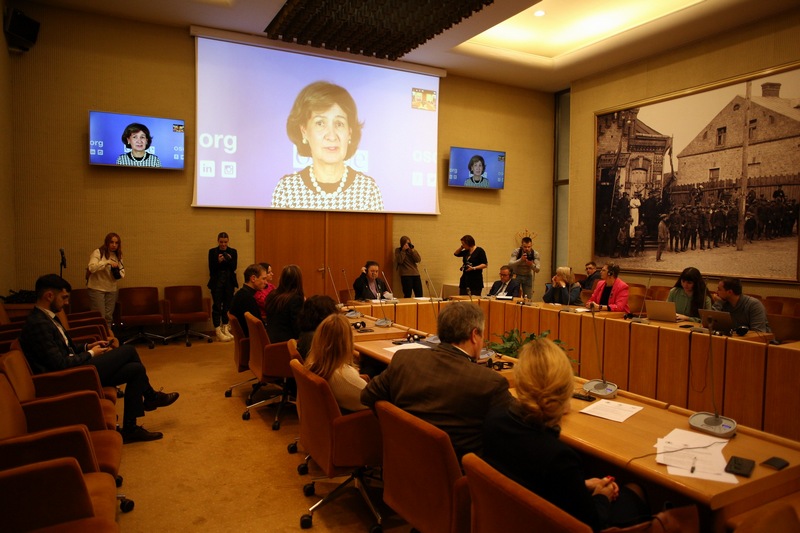
“I left Belarus by accident and couldn’t return – while I was away, my home and editorial office were searched, the equipment was seized, and cases were initiated against me and my son,” says Sviatlana Harda, editor-in-chief of Media-Polesye website, which is typical of the last two years’ Belarusian context. “However, we keep working despite the censorship in Belarus. Our audience has proved to be extremely loyal. People turn to us with their problems and questions out of old habits, they seek information about their region. The shortage of local news is now acutely felt.”
Since the outbreak of war in Ukraine, some media outlets have had to undergo a double relocation.
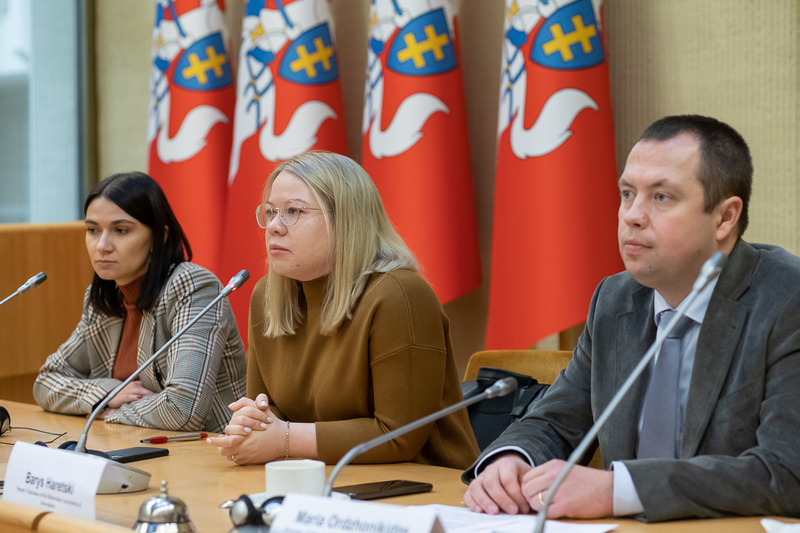
“At first, part of our team moved to Kyiv, where Zerkalo.io was founded,” recalled Aliaksandra Pushkina, communications director of the media outlet. “However, at the beginning of this year, we had to move for the second time. We are now operating from Lithuania and Poland. We had to start the whole process again here – registering a legal entity and employing people. But our work did not stop for a single day, even when the team was moving from Kyiv to other countries.”
The collapse of the media in Belarus, the arrest of media managers, and the relocation-related difficulties were not the only problems faced by the editorial team:
“Yandex blocked our media in its search engine. As a result, the churn amounted to over one million users. That was mainly the Russian audience. But eight months later, we are back to our previous figures and have managed to reach 3.5 million unique users. Some 50–60% are readers from Belarus, which is very motivating and makes us do the work. We cannot lose courage or twiddle our thumbs.”
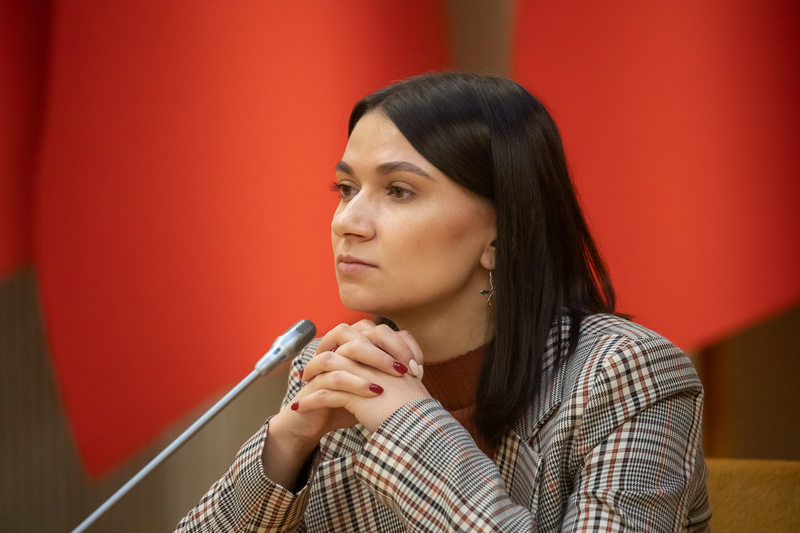
Another popular online publication that keeps working from abroad is Nasha Niva. Its director Anastasia Rouda described the situation in Belarus as unhealthy, and the current times as a test and a marathon for reporters:
“We keep up the media work, we dwell on the negative Belarusian agenda from sunup to sunset. There are daily reports of detentions, there are trials, and the war has broken out. At the same time, our texts are anonymous on both ends. On the one hand, we write about anonymous subjects and stories. On the other hand, we are worried about those who do journalism. That’s why the texts are mostly signed as Nashaniva.com. It is a collective journalistic mind that keeps working.”
“The persecution of journalists in prison continues”
“The situation with freedom of speech and expression of independent media in Belarus stays one of the worst in Europe,” said BAJ deputy chairman Barys Haretski.
This year alone over fifty searches and inspections at journalists’ homes were conducted and over forty reporters were detained in Belarus.
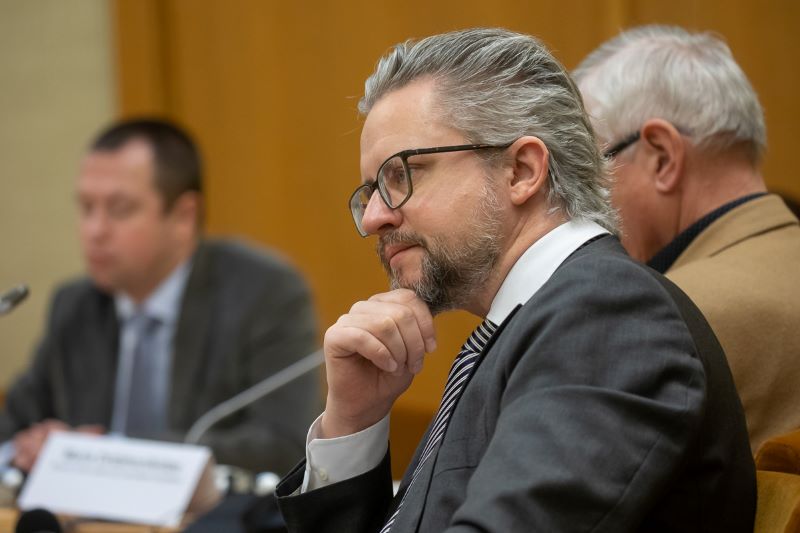
He reminded that the trial of Henadz Mazheika, former Komsomolskaya pravda v Belarusi correspondent, started the day the Forum was happening. The reporter is standing trial in the case of Andrei Zeltser who shot a KGB agent during a raid and was killed after. He is being tried for publishing the story of an acquaintance of the deceased IT worker.
According to BAJ, 32 journalists are currently kept in detention. Sentences range from 8 years of imprisonment for Katerina Andreeva to 14 years for Andrei Aliaksandrau and 13 years for Dzianis Ivashyn…
Unfortunately, the list goes on and on.
As Barys Haretski noted, the persecution of journalists in detention facilities continues: “On far-fetched grounds, they are deprived of relatives’ visits, correspondence bans are imposed, lawyers’ visits are restricted.
“In Belarus, there are no legal mechanisms for journalists to defend their rights,” added the BAJ deputy chairman. “Trials are held behind closed doors. Sometimes it is not even known what exactly the reporters are accused of.”
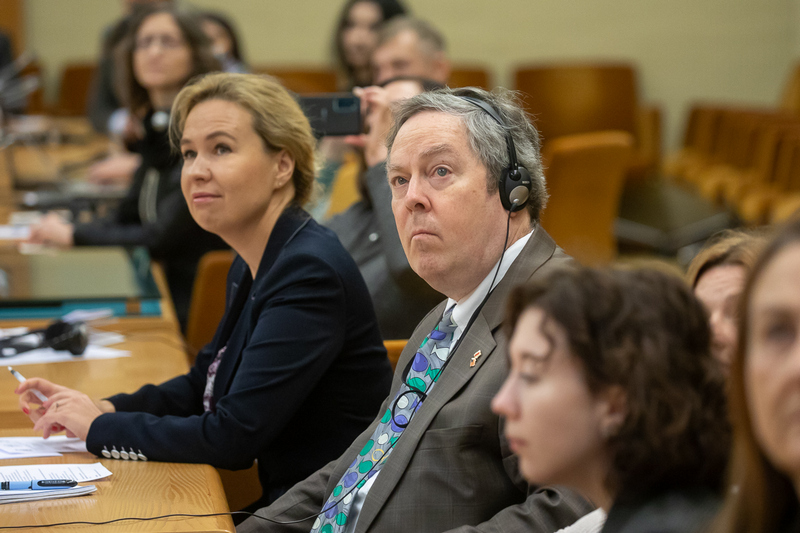
Moreover, the authorities label anything they do not like as extremism, including numerous media outlets.
“This is not just censorship of the information field, but its cleansing,” said Barys Haretski. “Such actions affect the work of independent media which should protect both journalists and subjects in their publications.
The Turkmenisation of Belarus
The unacceptable situation with freedom of speech and violation of journalists’ professional rights is closely monitored by various international organizations.
Thus, Maria Ordzhonikidze, director of the Justice for Journalists Foundation (founded after the murder of three Russian reporters who investigated the activities of the Wagner Group in the Central African Republic) drew attention to this trend:
“In 2020, over 1.5 thousand attacks were registered, including legal harassment (attack through weaponizing law, wrongful deprivation of liberty), on independent journalists in Belarus. In 2021, there were some 1000 cases. In 2022, the number dropped down to three hundred. It’s not that the intensity of attacks has decreased: there just isn’t anyone to attack – some have been expelled from the country, and some have been jailed. We call this Turkmenization.”
Deterioration of the situation with freedom of speech is characteristic for the whole region – including in Russia and Ukraine.
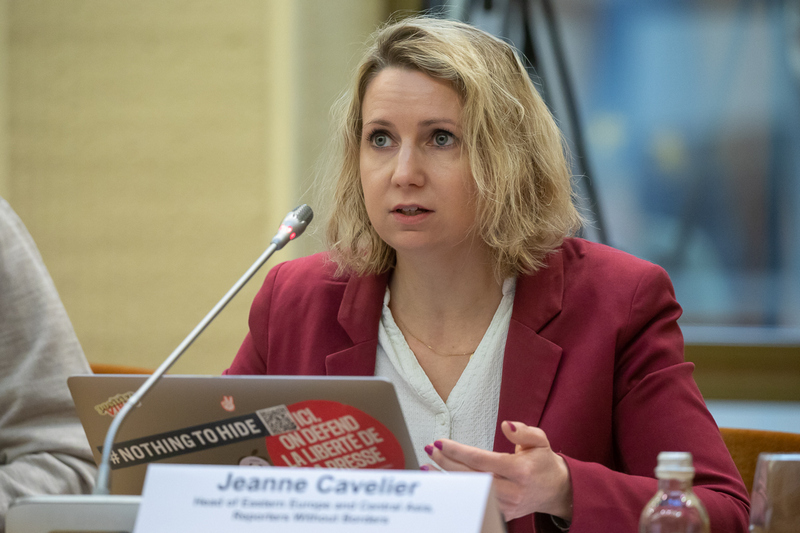
“Journalists have been repressed, prosecuted, killed during military operations,” observed Jeanne Cavalier, director of Reporters Without Borders in Eastern Europe and Central Asia office.
At the same time, she admitted that Belarus had become one of the most dangerous countries for media workers in the world. Belarus is ranked 153rd in the rating of the freedom of journalists.
The representative of Reporters Without Borders assured that Belarusian journalists are provided with all available support: financial, technical, educational, legal, and psychological assistance.
“We do not want Belarus and Russia to become black holes in terms of information,” Jeanne Cavalier emphasized.
“It’s time to stop being dithery!”
Interesting observations were voiced by Lithuanian journalists and human rights activists who closely monitor the situation with the Belarusian media sector.
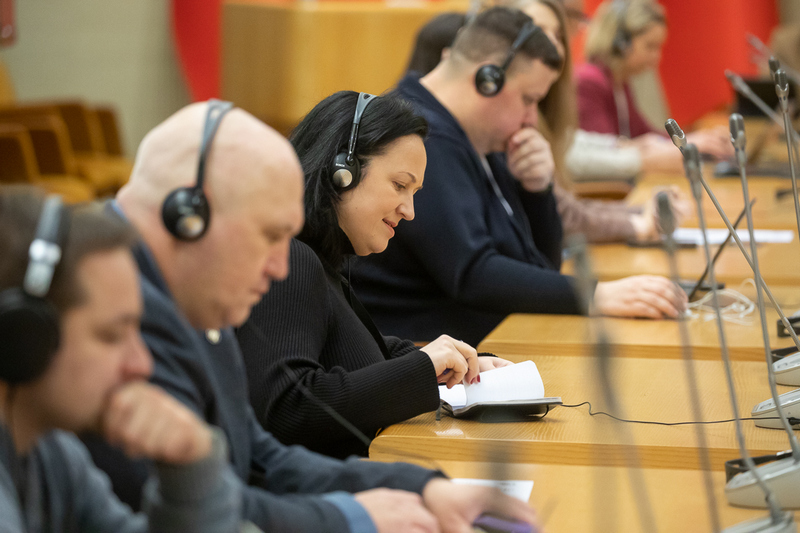
Deputy chairman of the Lithuanian Union of Journalists Darius Lukoševičius noted:
“Thirty years ago there tanks drove to the streets of Vilnius, and the troops seized the national radio and television. But that situation was different from what you have in Belarus. We have never had to work in emigration, there were not many quislings among Lithuanian journalists. The situation is more complicated for you.”
In his opinion, Belarus is no more a high priority on the European political and media agenda, unlike two years ago.
“If any information appears, it is, as a rule, another statement by Lukashenka,” pointed out Darius Lukoševičius. “As a professional journalist, I have no idea what the Belarusian society lives and breathes today and what part of the population believes Putin’s propaganda.”
Vytis Jurkonis, political scientist, human rights defender, and head of the Freedom House office in Lithuania, demonstrated awareness of the processes happening in Belarusian independent journalism:
“I used to be critical about the lack of investigative journalism. Over time, it emerged thanks to Stanislau Ivashkevich’s team. But these investigations may be even tougher and harsher and target the real culprits.”
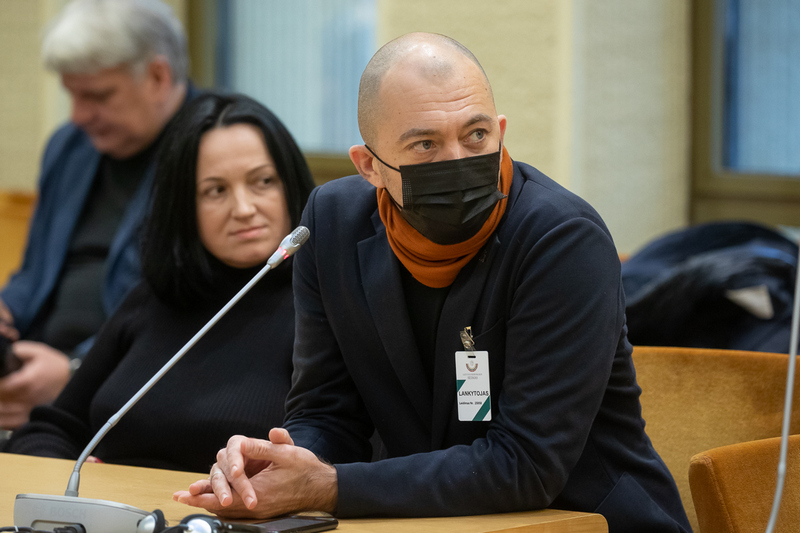
He also brought to notice that the media, including sports-oriented ones (Tribuna.com in particular), are switching to Belarusian: “It’s amazing! Five years ago it would have been something far-fetched.”
At the same time, Vitis Yurkonis emphasized the dominance of opinions from the same experts and the lack of regional news.
He also called for self-regulation of the media sphere:
“Strange projects like Radio 97 should not exist and divert resources. A clear stance on such projects is required. Let’s be honest: it is time to stop being dithery.”
The political scientist believes that there are good prospects for cross-border cooperation between the Belarusian, Ukrainian, and Russian independent journalists to build an anti-tatalitarian front.
He concluded by urging: “The independent media in Belarus have stood their ground. Give them honor and praise, but don’t lose focus!”
Watch the recorded video here:
— in English https://youtu.be/gjprn8MeYXg
— in Lithuanian https://youtu.be/jQPOpl9Ze8Q
 @bajmedia
@bajmedia

